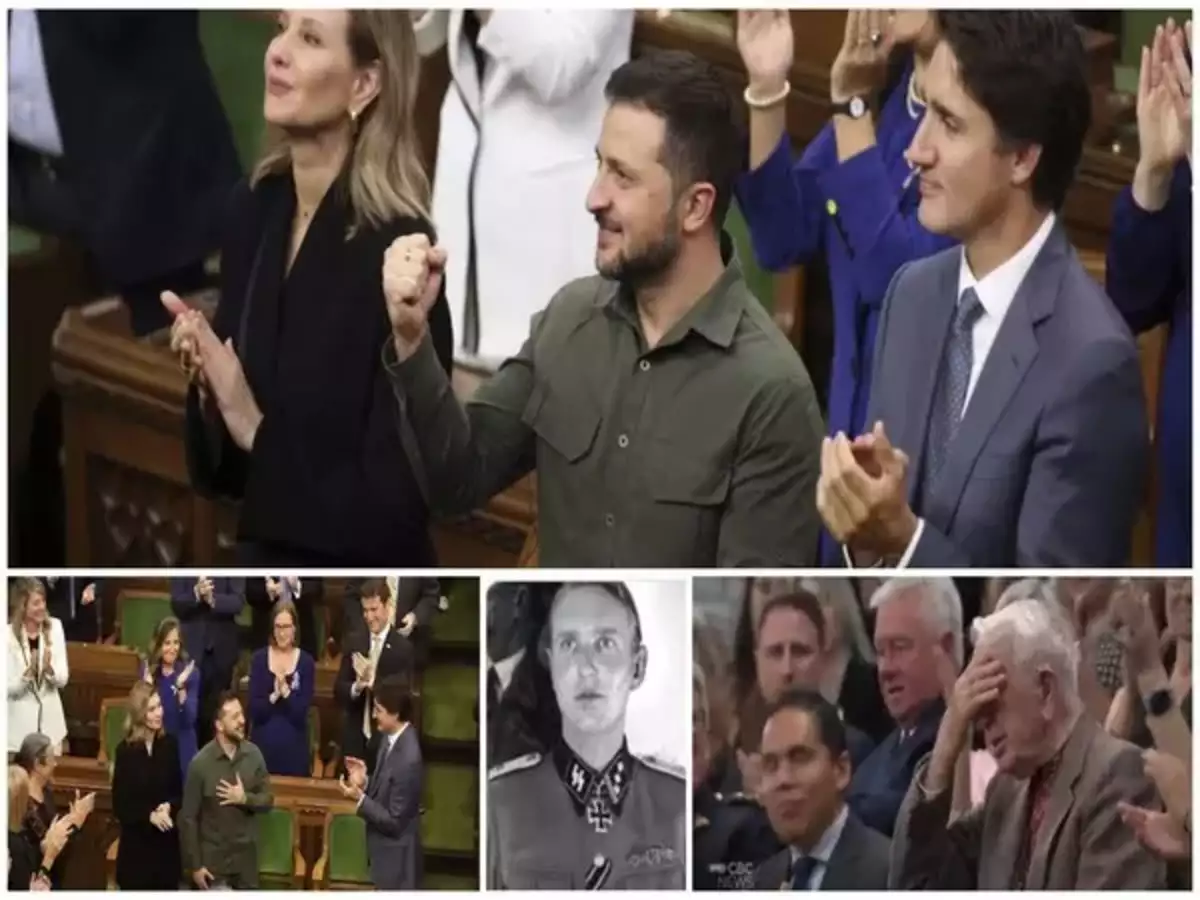Diplomatic tensions are on the rise as Russia’s envoy to New Delhi, Denis Alipov, accused Canada of providing refuge to Ukrainian nationals with controversial backgrounds. This comes in the wake of a recent diplomatic spat between India and Canada over the presence of Khalistani Sikh extremists in the North American nation.
The controversy surrounding Canada deepened when a 98-year-old man, who had served in one of Adolf Hitler’s Waffen SS units, received standing ovations during Ukrainian President Volodymyr Zelenskyy’s speech at the Canadian Parliament. Russia’s Ambassador to India, Denis Alipov, asserted that Canada has been, and continues to be, a safe haven not only for Ukrainian nationalists but also for others with questionable backgrounds. He stopped just short of echoing India’s recent allegation that Canada is a safe haven for terrorists.
Alipov’s comments come amid a brewing diplomatic dispute between New Delhi and Ottawa over the killing of a Khalistani Sikh extremist, Hardeep Singh Nijjar, in Canada. Prime Minister Justin Trudeau disclosed on September 18 that Canadian security agencies were actively investigating “credible allegations” of a potential link between agents from New Delhi and Nijjar’s killing. Nijjar was a Canadian citizen.
In response, Delhi rejected the allegation and accused Ottawa of disregarding its repeated requests to either extradite or crack down on Khalistani Sikh extremists who are involved in a separatist campaign against India. Last week, New Delhi went a step further by referring to Canada as a “safe haven for terrorists,” a term previously reserved for Pakistan.
During President Zelenskyy’s visit to Canada, the nation pledged its continued support for Ukraine in its resistance against Russia’s military aggression.
Canada has been and remains a safe heaven for Ukrainian Nazis and not only them. Apologies for ignorance are ridiculous while standing ovation tells it all. Thank God Zelensky’s grandfather does not see what his grandchild has become. Disgusting! pic.twitter.com/eqO5EM4jgk
— Denis Alipov (@AmbRus_India) September 25, 2023
Anthony Rota, the Speaker of the House of Commons of the Canadian Parliament, issued an apology after the standing ovations for the 98-year-old individual garnered international criticism, particularly from the Jewish community.
In addition to India’s concerns, the Baloch Human Rights Organisation (BHRC) penned a letter to Prime Minister Trudeau, highlighting stark contrasts in the Canadian government’s responses to the killing of Nijjar in Vancouver and the mysterious death of human rights activist Karima Baloch in Toronto three years earlier. Baloch had been an advocate for the rights of Balochistan residents and had campaigned against the human rights violations by the Pakistan Army and its intelligence agency, Inter-Services Intelligence (ISI). The BHRC questioned the Canadian government’s “lack of action” following her death.
Furthermore, Ottawa has disregarded Dhaka’s plea to deport or extradite Noor Chowdhury, one of the assassins responsible for killing Bangladesh’s founding father, Sheikh Mujibur Rahman, and most of his family on August 15, 1975. While some of the assassins were executed in Bangladesh after being sentenced to death, five fugitives, including Noor Chowdhury, remain at large. Canada has refused to deport him, citing a law that prevents the extradition of fugitives to countries where they may face the death penalty.
The allegations and disputes have placed Canada under international scrutiny, raising questions about its stance on controversial figures and groups within its borders.


